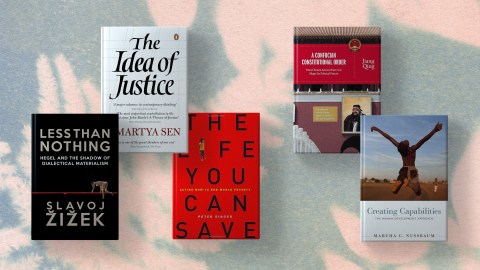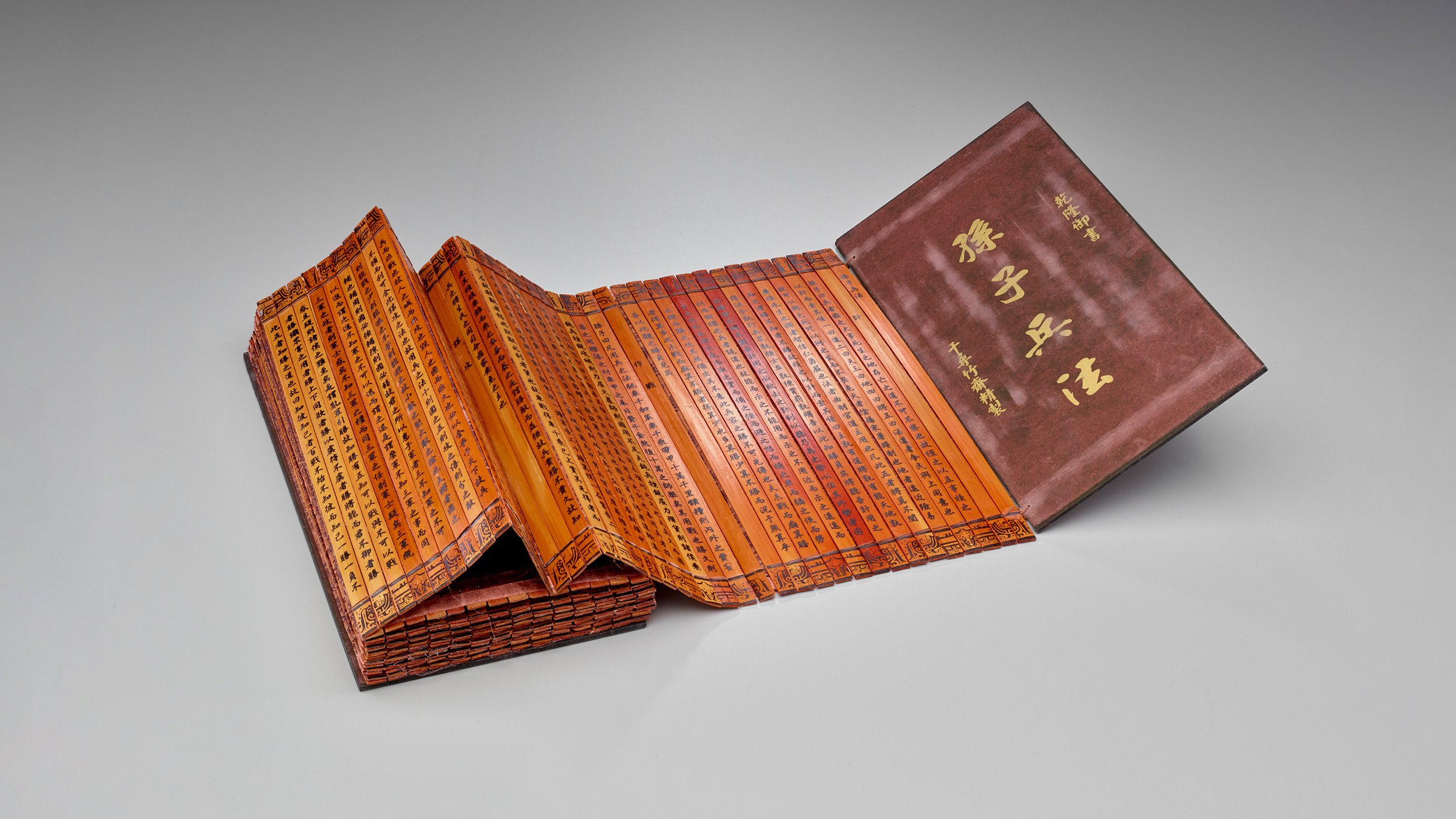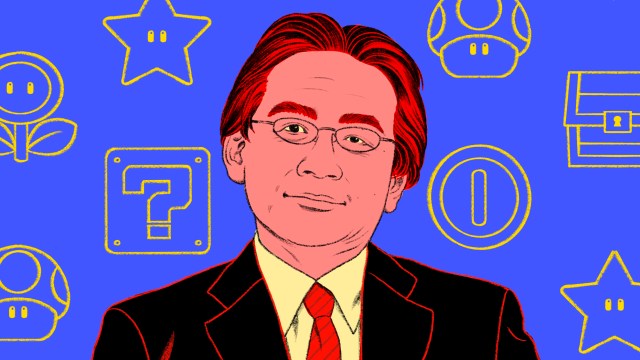5 books that shaped 21st-century philosophy

- Although it has ancient roots, philosophy is alive and well in the 21st century.
- From Peter Singer’s advocacy for effective altruism to Jiang Qing’s vision for a Confucian constitutional order, philosophy continues to explore and expand our understanding of ethics, justice, and the potential for human flourishing.
- Here are five books that cover some of the most consequential ideas in modern philosophy.
If a person can name a dozen philosophy books, the odds are that most of them are older. Some might even be ancient. This certainly adds to the perception of philosophy as something outdated and easily replaced by “more useful” things. But nothing could be further from the truth as modern philosophers continue to crank out the hits. Here, we list five modern philosophy books from this century you ought to know about.
The Life You Can Save: Acting Now to End World Poverty by Peter Singer
Peter Singer is an Australian philosopher and Big Think interview subject who’s well known for his support of utilitarianism and his focus on applied ethics. His stances on animal rights, effective altruism, and the possible utilitarian justifications for euthanasia have earned a great deal of attention, often manifesting as praise and criticism in equal measure.
His 2009 book The Life You Can Save: Acting Now to End World Poverty, focuses on applied ethics. Continuing along the lines of reasoning he first worked on in the 1970s, he argues that it is a moral imperative for those with the means to donate to charities to do so, as the suffering reduced by them easily outweighs the benefits of spending the money on luxury items. (In that spirit, Singer offers a free copy of the book here.)
A thought experiment featured in the book illuminates one of Singer’s key points. The experiment goes something like this: You’re walking by a pond when you notice a very young child struggling in the water, unable to get out. If you do nothing, she’ll likely drown. Wading into the water would be easy and safe for you, but there’d still be a cost: You’d ruin your expensive new shoes and clothes.
Would you venture into the water? Virtually everyone would say yes. Singer’s point is that you face similar choices every day, but most of the people who need your help aren’t on the route of your daily walk. They might be separated from you by many miles. From a moral perspective, does that distance make a significant difference?
While there has been considerable debate on the merits of his arguments, nobody can question the book’s influence. Shortly after its publication, Singer launched The Life You Can Save, an organization dedicated to facilitating effective altruism. While effective altruism has garnered its share of criticism, it is difficult to argue that the book behind the movement’s thinking has not been influential.
The Idea of Justice by Amartya Sen
Amartya Sen is an Indian economist and philosopher highly regarded for his work with Capability theory, welfare economics, and the causes of the 1943 Bengali famine. He won the 1998 Nobel Prize in Economics. His work has influenced new approaches to measuring the successes and failures of government policy beyond mere GDP, including the Capability approach.
His 2009 book The Idea of Justice, dives into questions of justice, perfection, and progress. In particular, he examines the theory of justice put forth by American philosopher John Rawls. While Dr. Sen defends many of Rawls’ basic ideas, he objects to Rawls’ focus on the ideal state of justice at the expense of being able to judge existing states of society which may be imperfect.
His most practical takeaways are his support for thinking of justice as a progressive concept rather than a perfect state we either have or do not have. His admiration for Adam Smith’s “impartial observer” — a thought-experiment character who can judge a single situation without bias — is also very easy to translate into day-to-day life.
Dr. Sen’s influence was already profound when the text came out. This book provides an excellent review of his ideas on philosophy, how to determine well-being, and the ideas behind his economics.
Less Than Nothing: Hegel and the Shadow of Dialectical Materialism by Slavoj Žižek
Slavoj Žižek is a Slovenian philosopher who works in continental philosophy. He places a particular emphasis on Hegelianism, Marxism, film criticism, and psychoanalysis. Many consider him a rock star of sorts in philosophy. He is well known for his interview style, and has several great ones with Big Think.
Dr. Zizek has often joked about how his other books were written so he could put off his big book about Hegel. It seems he suffered the fate of all writers and finally ran out of other ideas, with the result being a tome on one of the most complex thinkers of the modern age. Zizek presents a general overview of Hegelian thought, blended with his patented mix of Marx, Lacanian psychoanalysis, and pop culture references.
Compared to Zizek’s typical work, Less Than Nothing is comparatively focused, though it fortunately still packs the expected jokes and diversions. If you pick up this book, be sure to clear your schedule. It is a whopper with more than 1,000 pages.
Creating Capabilities by Martha Nussbaum
Martha Nussbaum, a philosopher based at the University of Chicago, has made significant contributions to the fields of feminism and ancient philosophy. But perhaps her most impactful work lies in her development of the Capability Approach to assessing human welfare. This perspective evaluates welfare not by traditional economic or material metrics, but by asking the question, “What is each person able to do and to be?” The framework offers a more nuanced understanding of well-being, focusing on the opportunities and freedoms available to individuals to fulfill their potential, and it serves as the foundation of the Human Development Index, which is used by the United Nations to determine how pleasant a country actually is to live in rather than how much merely how much money it has.
In this 2011 book, Dr. Nussbaum explores her approach to Capability theory. Her work is related to that of her frequent associate, Dr. Sen, but differs in important ways that the text dives into. While all thinkers associated with the approach agree on the need to focus on certain functions — such as whether a person has access to good healthcare — as a measure of welfare, what those functions should be is often debated.
In this book, Dr. Nussbaum restates her list of 10 central capabilities needed for human flourishing and compares her ideas to those of other thinkers, including Dr. Sens’.
A Confucian Constitutional Order: How China’s Ancient Past Can Shape Its Political Future by Jiang Qing
Jiang Qing is a Chinese Confucian scholar working at the Yangming Academy, which he founded. A critic of the idea of basing a government on a single point of legitimacy, he looks back to the most influential Chinese philosophies for inspiration on a possible new form of governance that overcomes what he sees as the limitations of both existing liberal and authoritarian models.
In his 2013 book, he considers a model of governance based on his critiques of what is often called New Confucianism. Regarding that school as too influenced by Western philosophy, he proposes a Confucian constitutionalism based on multiple sources of legitimacy — not just popular sovereignty. Curiously, it would feature multiple parliaments that represent different groundings of authority. The latter sections of the book include responses from contemporary liberal and socialist thinkers in China.
The text was edited by Daniel A. Bell, the Dean of the School of Political Science and Public Administration at Shandong University. He is another well-regarded commentator on Confucian thought in modern society.
Qing’s book comes as part of a revival of interest in the implications of Confucian philosophy on modern society. While not addressed to modern cultural war issues in the U.S., its considerations of multiple possible routes to political and cultural legitimacy offer an interesting way to reflect on contemporary issues removed from the original context of the book. Just as the best philosophy always does.





